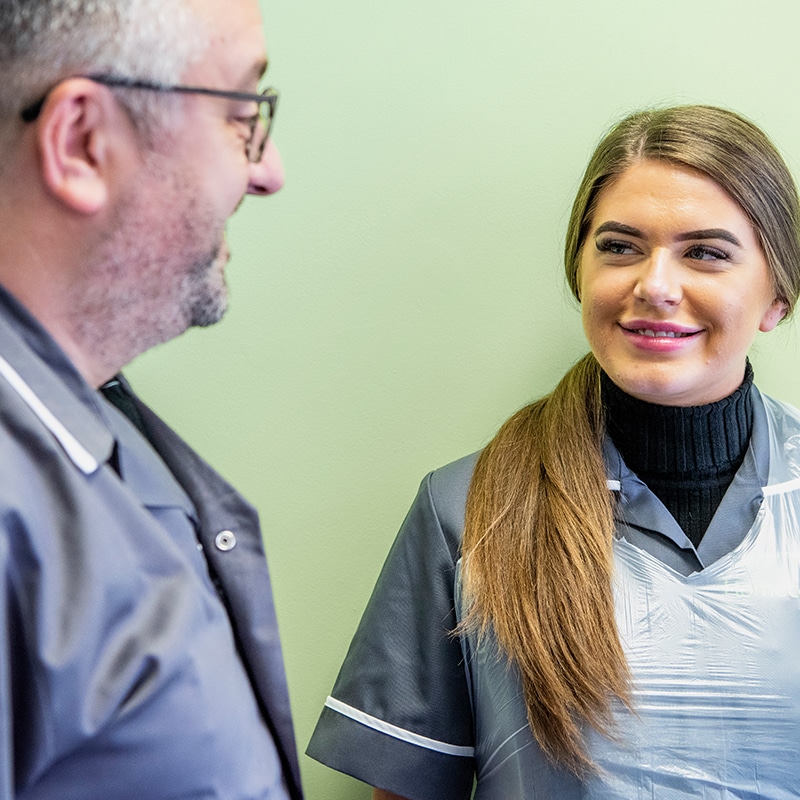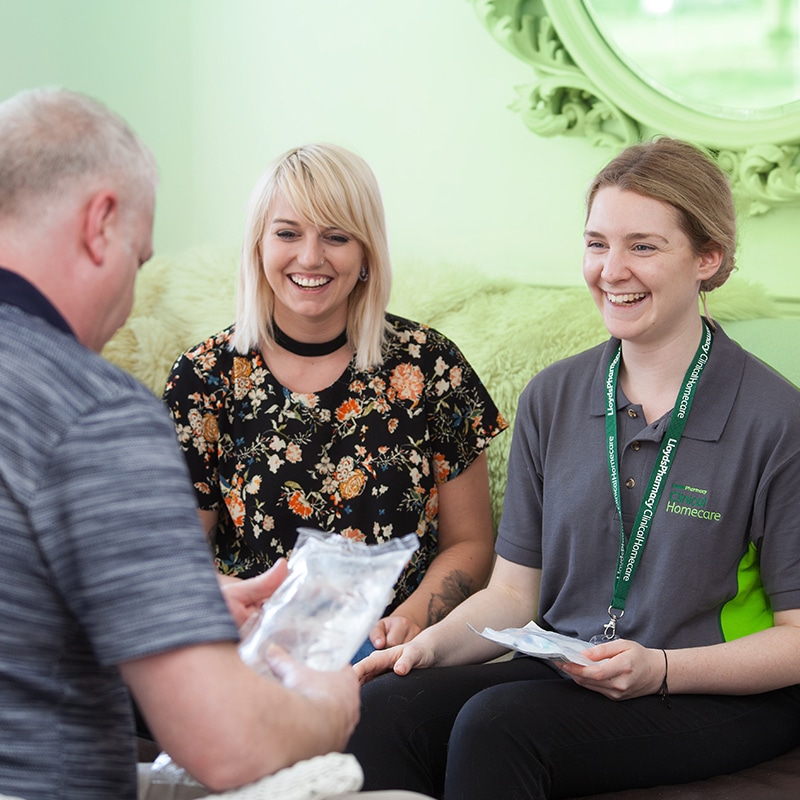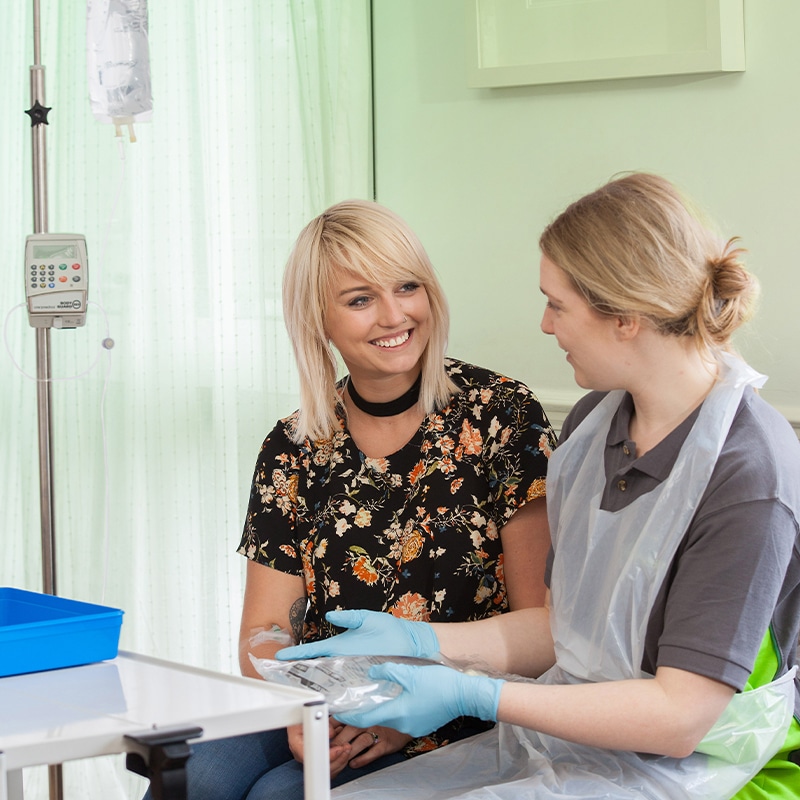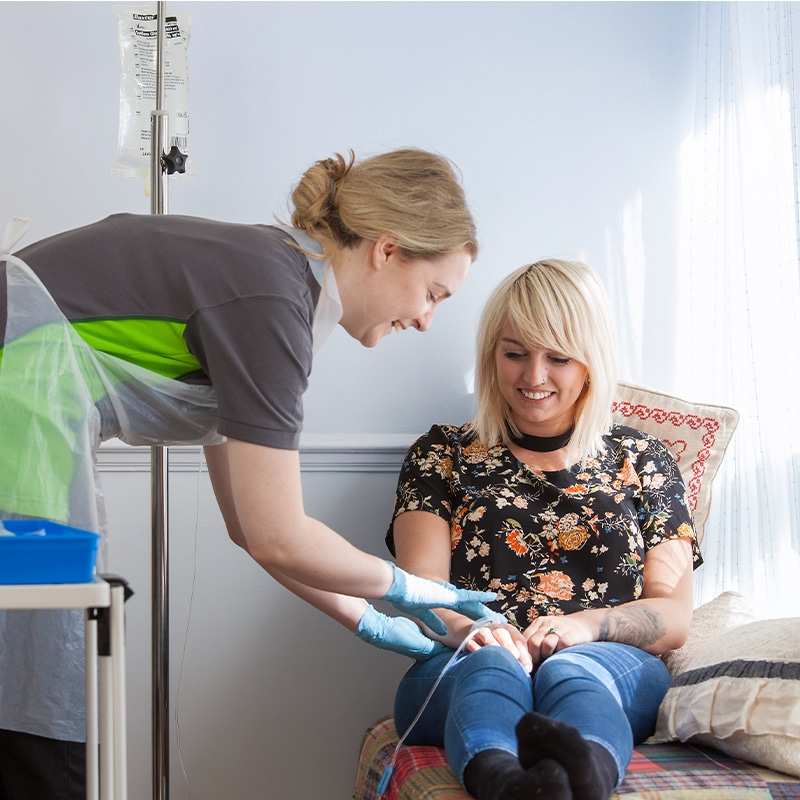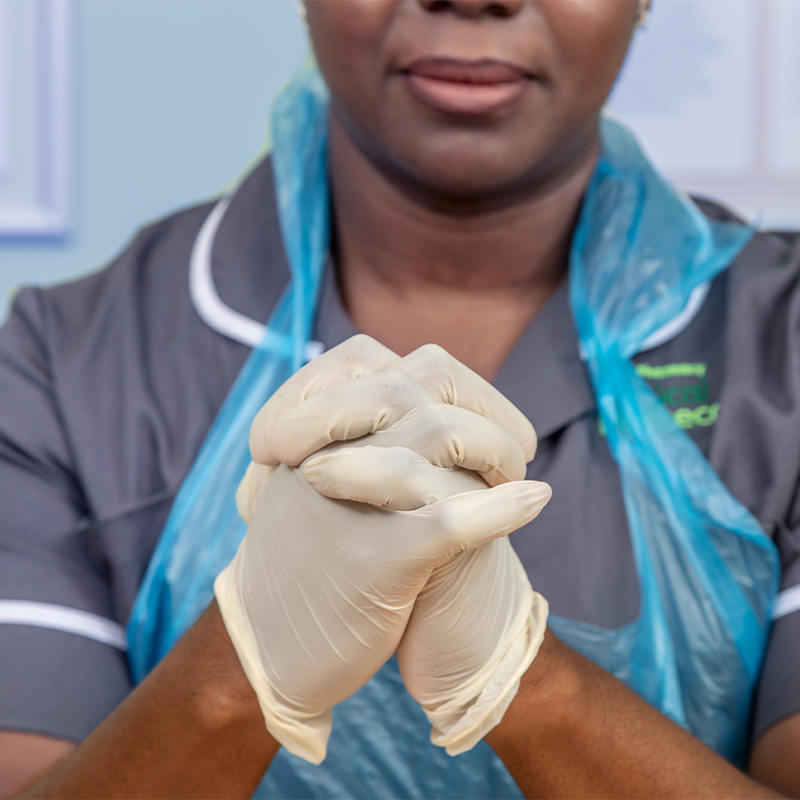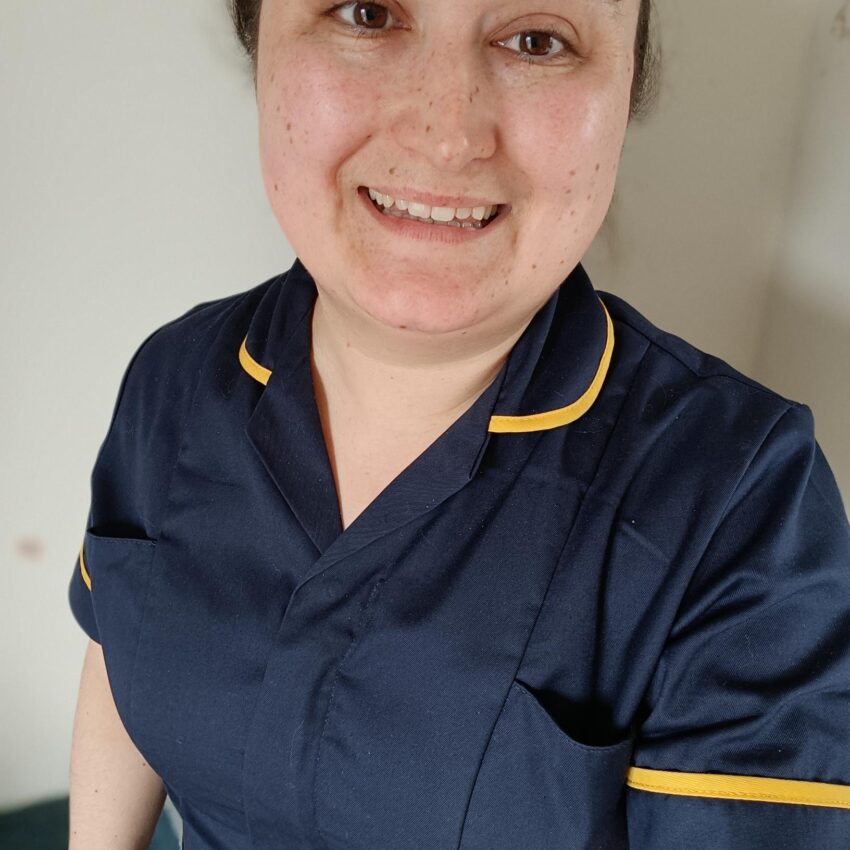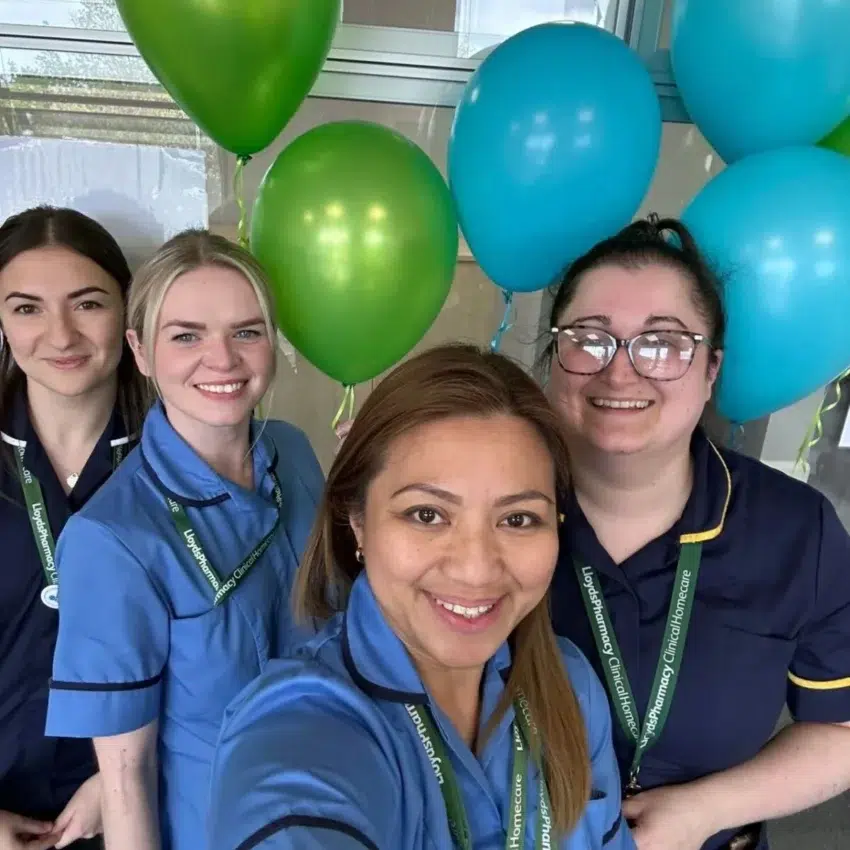Caleb has a brilliant quality of life, he has independence
‘Caleb’s life isn’t running on the same course as your average little boy due to Hunter Syndrome. I feel lucky to say Caleb has a brilliant quality of life, he has independence, he doesn’t need a wheelchair, and he’s still learning – most children with this condition stop learning between the ages of 4 and 8.’ Daniella, Caleb’s mum.
Being supported by LloydsPharmacy Clinical Homecare (LPCH) means that 9 year-old Caleb can be treated at home by his mom, Daniella, rather than in hospital.
About Caleb
In 2010, Caleb was diagnosed with a very rare metabolic condition called MPS II Hunter Syndrome. The disorder means that his body lacks an important enzyme required to break down the body’s natural waste, with symptoms including physical illness and learning difficulties.
Caleb requires a weekly Enzyme Replacement Therapy (ERT) infusion that takes up to 5 hours to complete. Initially, this had to happen in hospital, involving a difficult drive into London and long waits that were both tough for Caleb and disruptive to family life. At a time when Daniella was already concerned about his education and integration at school, having the treatment in hospital also meant taking Caleb out of school for a full day.
Given the rarity of a serious life limiting condition like Hunter Syndrome, there was little available information out there for Daniella and her husband Mark when Caleb was first diagnosed, which was scary and worrying. The emotional impact of this, combined with the practicalities of regular hospital trips, took over their daily life. Ten weeks after diagnosis, the hospital introduced Daniella and Mark to the idea of clinical homecare.
What is Caleb’s condition?
- MPS II Hunter Syndrome
- He lacks the iduronate-2-sulfatase (I2S) enzyme
- This means he is unable to properly break down and recycle specific mucopolysaccharides
- This affects his ability to socialise, verbally communicate and sleep, alongside other physical symptoms
How is Caleb treated?
- Enzyme Replacement Therapy (ERT)
- Weekly 5 hour infusions at home
- Treatment administered by his Mum
- Monthly hospital trips to take part in a clinical trial treatment
How do we support Caleb?
- Regular delivery of medication and ancils via cold chain vehicle to his home
- Nurse support out of hours if needed
- Nurse review visits every six months
The benefits of clinical homecare for Caleb and his family
- A greater sense of normality
- The ability to establish routine in their lives
- The flexibility to go on holidays without disrupting treatment
- Fitting Caleb’s treatment around other family commitments
- A reduction in Caleb’s anxiety and stress when he receives his treatment
- Reassurance for Daniella and her husband Mark

No one wants to do an hour trip to a hospital in London!
‘The nurses knew how to integrate into a home environment, so that gave me a lot of confidence and brought some normality to our lives, no one wants to do an hour trip to a hospital in London!’
Caleb was referred to LPCH who arranged for regular deliveries of his medication, and specialist nurses to visit his home once a week to administer his infusion. The nurses treating Caleb were all working with other boys with Hunter Syndrome, which reassured Daniella and gave her the ability to obtain additional valuable information she needed about dealing with the condition. Whilst this alleviated the stresses of regular hospital appointments for a child like Caleb, for whom routine and structure are very important, the treatment process was still an anxious experience.
‘Initially it’s difficult having a nurse in your home environment because at first it feels unusual and abnormal to have someone constantly coming in and out. The infusion can take up to five hours, and having someone in your home for that duration feels a long time too. I spoke to LPCH about this and the support I got was fantastic. They said I could learn to administer the infusions myself with as much or as little support from them as I needed.’
Six months after Caleb began treatment at home, the LPCH nurses trained Daniella to perform the infusions herself. Daniella was taught to perform all stages of treatment, including preparing the equipment in sterile conditions and connecting the line to Caleb ready for infusion. This means she has full understanding and control of the treatment. Mark was also trained to provide support, allowing them both to give Caleb his treatment as a team and as efficiently as possible.
‘Initially while I was still learning the nurse would stay for the first two hours and then sit in the car outside. We had the knowledge that she was there if we needed her.’
The LPCH nurses also provided Daniella with advice and strategies to deal with issues beyond the treatment itself. Due to a needle phobia and Caleb’s inability to verbalise stressful thoughts, Daniella found that Caleb would become distressed and ‘play up’ during procedures. After raising these issues with the team at LPCH, Daniella was advised by the nurses to include Caleb more in the procedure. Caleb is now given his own props, equivalents of the medical apparatus used in his procedure. Through the guidance of the LPCH nurses Daniella has been able to use this and other techniques to calm Caleb and ensure that his stress levels are as low as possible during treatment.
Daniella can now give Caleb his treatment at a time that fits in with his routine
Supported by the LPCH team, Daniella can now give Caleb his treatment at a time that fits in with his routine and the family’s plans, and in an environment that is more comfortable and familiar. This even means that Daniella, Mark, Caleb and their younger son Gabrielcan go on two week holidays abroad, taking Caleb’s medicine with them and performing the infusion at a convenient time while away.
‘Building a relationship with the nurses at LPCH and the paediatric nurses has been life changing, just having that support means I don’t feel like I’m on my own so much.’
Treating Caleb herself allows Daniella to feel more in control. Through training Daniella, LPCH have helped bring a sense of normality to her family life, allowing for greater flexibility when Caleb is treated, while making the process as easy and as pleasant as possible. The LPCH nurses are highly skilled experts, training Daniella in how to use the equipment in a safe way, while understanding the challenges of working with young patients such as Caleb.
From ordering drugs and organising delivery, to finding the specific adhesive dressings Caleb needs and always being available on the phone to offer advice, LPCH provides Daniella and her family with the end-to-end support they need to be independent and lead a happy family life.
‘LloydsPharmacy Clinical Homecare gives clinical support, personal support and someone to talk to at the end of the phone.’
